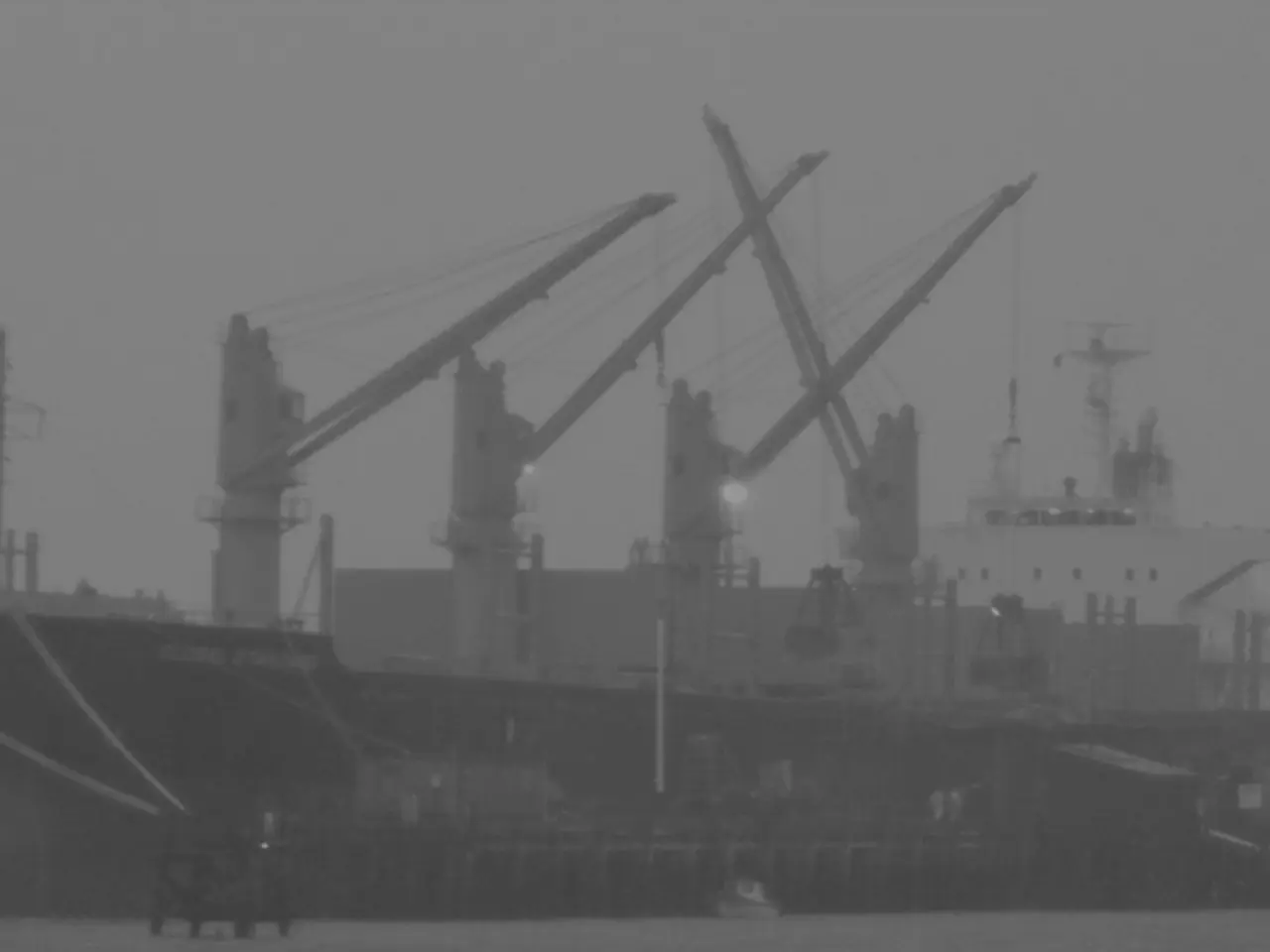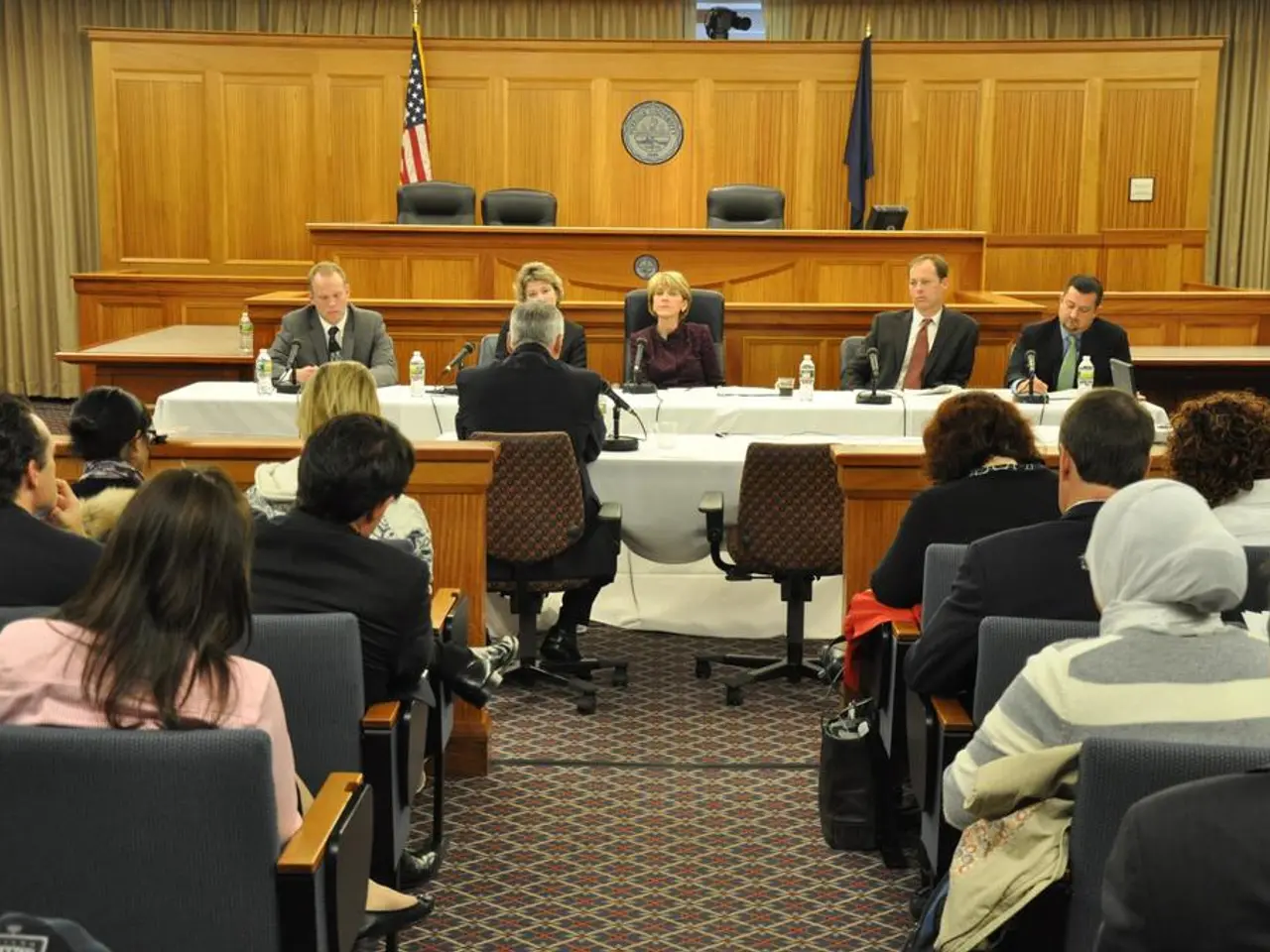Sharp Zoll Dispute with the US: Reich Vows to Fight for German Economy
The German economy is experiencing significant daily financial losses due to ongoing customs disagreements.
The ongoing Zoll (tariff) dispute between Germany and the United States has taken a turn for the worse, costing the German economy millions daily while straining diplomatic relations. Bundeswirtschaftsministerin Katherina Reiche is on a mission to resolve the issue during a visit to the US, with major economic implications for both countries.
The escalating tariff conflict was initiated by President Donald Trump, who announced new tariffs on EU imports as one of his first acts in office. The trade war is far from isolated, affecting global steel and aluminum markets, which Germany plays a significant role in. As a leading steel producer and exporter, the tariffs have targeted a key market for German companies, prompting a decline in exports to the US.
"6,000 German firms operate in America, producing in all 50 states," Reiche highlighted, emphasizing the economic bond between the countries. These firms create over 900,000 jobs in the US, she added, making an agreement crucial for growth, investments, and job security.
Reiche is actively engaging with American officials, including Finance Minister Scott Bessent, Trade Minister Howard Lutnick, and US Trade Representative Jamieson Greer, to promote EU negotiations. She is also meeting with American business representatives to discuss the matter further.
The uncertainty caused by the Zoll dispute is a pressing issue that must be addressed swiftly, according to Reiche. As the dispute persists, manufacturers worldwide, particularly in Asia, are leveraging the situation to redirect shipments to Europe, increasing competition and putting downward pressure on prices for German steel manufacturers already grappling with high energy costs and the expensive green transition.
The core challenge for Germany lies in the disruption of a critical export market, compounded by emerging competitive pressures, and the potential complications in transitioning to climate-friendly "green" steel production, a costly yet essential endeavor for meeting environmental targets. On the other hand, the US faces increased tariffs and trade tensions, potential domestic industry impact, and the risk of retaliatory measures from Germany and other EU members.
As the dispute continues to unfold, the economic consequences underscore the broader challenges in transatlantic trade relations and climate policy cooperation, necessitating a cooperative and swift resolution for the betterment of both nations' economies.
- The employment policies within the community and industry are at stake due to the ongoing Zoll dispute between Germany and the US, with numerous German firms operating in America potentially affected.
- The escalating trade war, largely political in nature, has resulted in finance and business repercussions, prompting the need for close collaboration between ministers of both nations, including those handling employment policy, to arrive at a resolution.
- The tariff conflict, with its roots in general news topics like war-and-conflicts and politics, isn't just an isolated issue; it has far-reaching implications for global markets, especially the steel and aluminum sectors, which are significant for Germany and other countries involved.







